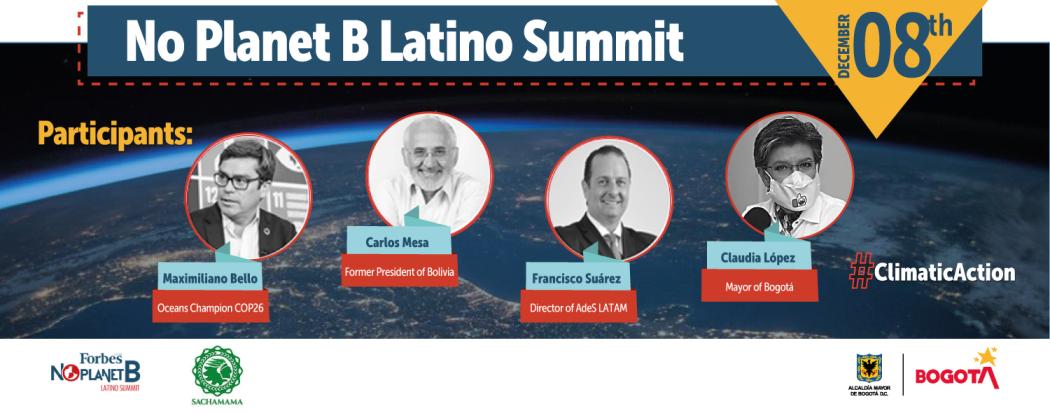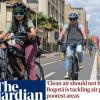This Tuesday, December 8, the mayor of Bogota, Claudia Lopez, participated in the No Planet B Latino Summit, promoted by Forbes, a summit that brought together the most prominent Latin American leaders to strengthen the role of the Latino community in the fight against climate change by creating strategies for the effective implementation of the Sustainable Development Goals (SDA) and the Paris Agreement.
The Mayor was invited because she belongs to the group of the 100 most influential Latinos in the commitment to climate action, a recognition made by Forbes LATAM magazine. In the publication she was alongside other leaders on the issue, such as Congresswoman Alexandria Ocasio-Cortez; former President of Ecuador and environmental activist Rosalía Arteaga Serrano; and biologist Alicia Bárcena, Executive Secretary of the Economic Commission for Latin America and the Caribbean (ECLAC).
The conversation revolved around how cities and organizations have made progress in meeting the objectives of the "Race to Zero" initiative (a coalition of 452 cities within the framework of the United Nations on Climate Change), which promotes a shift towards a decarbonized economy by 2050 from the areas of climate activism, sustainable policies, environmental rights and communications.
Nemonte Nenquimo, president of the Waorani organization of Pastaza, spoke about the risks of the exploitation of resources such as oil and gold in the deforestation and destruction of ecosystems. She asked that people not think that this is only a struggle of indigenous peoples, but of all of society.
Carlos Zegarra, director of Sachamama, spoke about the importance of continuing to move forward with international climate change commitments such as the Paris agreements and sustainable development objectives.
Sebastián Navarro, Secretary General of CC3, spoke about how the 100 Latinos selected for the forum have the responsibility to continue promoting the implementation of measures to change the course and generate systemic change.
Carolina Schmidt, Minister of Environment of Chile and President of the COP 25, spoke about how our region is one of the most privileged and rich in terms of natural resources and biodiversity, something that also makes it the most vulnerable to climate change. For this reason, she stressed the importance of generating new measures to reduce the consequences of global warming in order to generate a more sustainable, equitable and fair world.
During her speech, Mayor Claudia López highlighted how the urban challenges exacerbated by the impacts of climate change can be addressed, pointing out that, "Above Bogota is the largest páramo system in the world, for that and other reasons we are a mayor's office very committed to climate change. What have we learned, what opportunities has the pandemic brought us to make Bogota greener? Bogotá is already known as the capital of the bicycle; with 550 kilometers of bicycle routes, 6.6% of trips in our city before the pandemic began were made by bicycle, now it is 13% of trips in the city. That's not only because of the network of bike routes we already had, but because of new policies we've taken, for example, we've added 85 kilometers to the city's main roads to encourage cycling as a means of redistributing space to pedestrians and cyclists.
Mayor López also pointed out the bets of the Colombian capital in environmental terms, where she highlighted the importance of the declaration of the climate emergency and the projects to create the Metropolitan Region Bogotá-Cundinamarca. All of these projects will allow the city to continue advancing in the fulfillment of the Sustainable Development Objectives.






